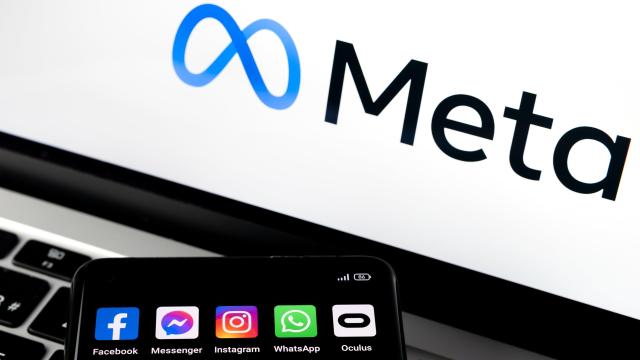An ongoing Federal Trade Commission lawsuit against Meta has claimed the tech giant has been anticompetitive. How does Meta respond? By demanding the sensitive data of hundreds of tech companies, including several of its biggest rivals and competitors.
Bloomberg first reported on Meta having filed 132 subpoenas of some of the biggest tech and social media companies around, including ByteDance-owned TikTok, Twitter, Reddit, and Snap, whose apps remain some of Facebook and Instagram’s biggest competitors. As much as the requests for data say they need to show how much competition Meta faces amongst its rivals, they also ask for an incredible amount of sensitive data about each apps targeted ad capability, user data, marketing strategies, and contacts for their biggest advertisers.
Companies like Snap have called Meta’s requests “massively overbroad and unduly burdensome” for requesting data relating to their ad targeting capabilities, privacy policies, and how they protect user data. The company called these requests “clear fishing expeditions” by forcing them to “reconstruct virtually every decision Snap has made.”
The FTC had previously sued Facebook in 2020 to get the social media giant to drop Instagram from their portfolio, though that complaint was dropped by the court. The matter continued in 2021 with an amended complaint filed in August last year, which added even more fuel to the smouldering embers of Meta’s attempts to push out rivals via buyouts and anti competitive activity. The FTC has argued that Meta’s acquisitions (back when it was still called Facebook) of WhatsApp and Instagram were anticompetitive, pushing up prices for the entirety of the social network market. Meta had asked the court to dismiss the FTC’s lawsuit last year, but a judge denied the motion this past January.
Per Bloomberg, there likely won’t be a trial until 2024, but while marshaling evidence before a trial is standard practice for any trial case, Meta’s hounding of hundreds of companies for their sensitive data “is not typical,” according to one antitrust litigator Kellie Lerner cited by the report.
According to court documents, these subpoenas have sought data from companies based in and out of the U.S., including two Japan-based companies Line Corp., which developed the Line social media app popular in Japan, Taiwan, and Thailand, and the Rakuten Group, an electronic retail company. The documents show that Meta is not only asking for Line’s daily active users and hours spent by those users, but also data showing how Line is used to maintain relationships and share experiences with friends.
TikTok remains Meta’s main focus as of late, with the company trying to replicate their short-form video format through Reels. In seeking documents from TikTok’s parent company, China-based ByteDance, Meta requested more data on the company’s acquisition of Musical.ly, “which helped spur the popularity of TikTok as a social network that competes with Meta.” They also sought info on TikTok user satisfaction and engagement.
TikTok and ByteDance did not immediately respond to Gizmodo’s request for comment.
Meta claimed in its subpoenas it needs this information to dispute the FTC’s accusations that Meta is creating a monopoly. In one data request sent to the court, the company wrote “The FTC excludes countless other obvious competitors, including TikTok, Twitter, YouTube, LinkedIn, and nearly 200 others that have publicly identified Meta as a competitor.”
Meta did not immediately respond to Gizmodo’s request for comment in response to competitors calling these data requests excessive and a breach of sensitive data. A Meta spokesperson told Bloomberg these requests were “a natural step” to prepare for the FTC’s lawsuit.
The FTC’s amended August complaint cited then-Facebook’s initial failure to break into mobile markets after dominating the social space before the proliferation of smartphones. The agency alleged that after buying up Instagram and WhatsApp in 2012 and 2014, respectively, the company used its dominance to exclude new potentially competitive apps.
The FTC is also going after Meta for its attempted acquisition of a virtual reality fitness app, saying the company and its CEO Mark Zuckerberg were trying to corner the VR market. The agency recently agreed to drop Zuckerberg’s name from the lawsuit, but the case is still ongoing.
